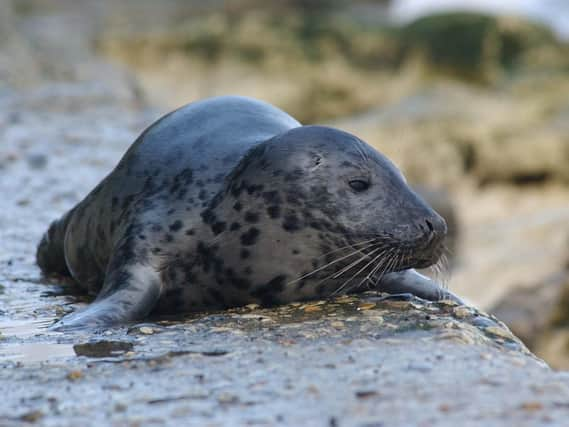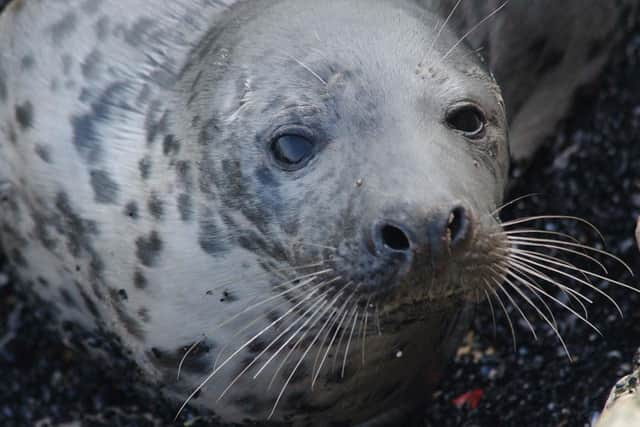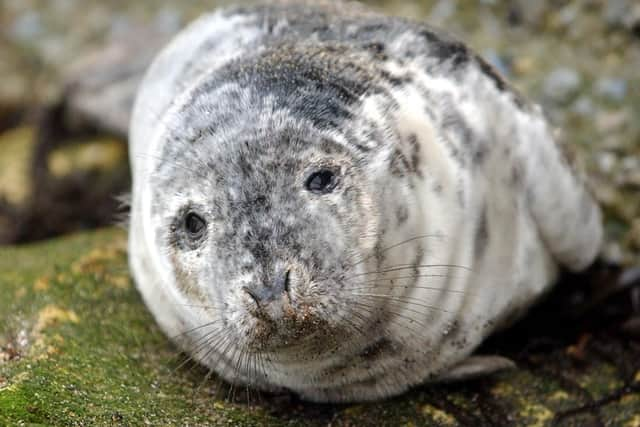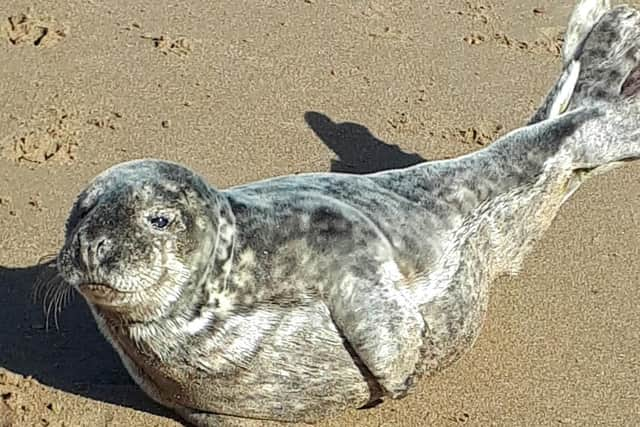This is what you should do if you spot a 'stranded' seal which has come ashore


And while passers-by may fear that the animals are in need of help, animal welfare chiefs have urged people to stay away from them.
They say it's a perfectly normal part of a seal's behaviour to come ashore if it needs to digest food - or simply have a rest.


Advertisement
Hide AdAdvertisement
Hide AdAnd it's only necessary to call for help if a seal is stranded for days, or appears to be sick or injured.
The Blue Reef Aquarium at Tynemouth has a specialist rescue centre, which works with the British Divers Marine Life Rescue (BDMLR) and RSPCA to help stricken animals.
It offers emergency care for seal pups, as well as other marine life that washes up on the Tyne and Wear coast.


Advertisement
Hide AdAdvertisement
Hide AdHere's what the BDMLR advises for anyone who finds a seal which has come ashore:
If you find a live seal
Watch it from a distance. Do not approach the animal.
Seals regularly haul out on our coasts - it is part of their normal behaviour and in fact they spend more time out of the water, digesting their food and resting.


Therefore, finding a seal on the beach does not mean there is necessarily a problem and they should not be chased back into the sea, as this may stop them from doing what they need to do - rest.
A healthy seal should be left well alone.
After stormy weather and high tides, seals will haul out onto beaches to rest and regain their strength.
Advertisement
Hide AdAdvertisement
Hide AdMany do not need first aid, but we will always try to find someone to check them out just in case.
However, if there is a problem, there are a number of things you may see:
Abandoned: If you see a seal with a white, long-haired coat in the autumn/winter, or you see a small seal (less than 3ft in length) alone between June and August, then it is probably still suckling from its mother. Check the sea regularly for any sign of an adult seal.
Advertisement
Hide AdAdvertisement
Hide AdThin: Signs of malnutrition include visible ribs, hips and neck and perhaps a rather baggy, wrinkled skin.
Sick: Signs of ill health include coughing, sneezing or noisy, rapid breathing and possibly thick mucus coming from the nose, wounds or swellings, particularly on the flippers, and possibly favouring one flipper when moving (although remember that healthy seals will often lie and ‘hunch along’ on their sides).
They might also have cloudy eyes, or thick mucus around them, or possibly one eye kept closed most of the time a seal showing little response to any disturbance going on around it (although remember they could be soundly asleep).
Advertisement
Hide AdAdvertisement
Hide AdIf you see a seal that may be abandoned, thin or ill, then call for advice and assistance:
BDMLR RESCUE HOTLINE:
01825 765546 Monday-Friday 9am-5pm
07787 433412 out of office hours and bank holidays
or RSPCA hotline (England & Wales): 0300 1234 999
SSPCA hotline (Scotland): 03000 999 999
You will receive further advice over the phone.
If there is a problem with the animal, this is how you can help:
Provide information: Give the hotline an accurate description of the seal and its exact location.
If at all possible, stay on the beach to guide the rescue team to the animal.
Advertisement
Hide AdAdvertisement
Hide AdThis can save valuable and perhaps critical time. If you have a mobile, give the number to the hotline.
Control disturbance: Stop other people and their animals from approaching the seal, because - if it is a seal pup that is still suckling, then approaching the pup could threaten the mother-pup bond and the pup may be abandoned.
Seals will react if approached too closely and are capable of inflicting a nasty bite - even the smallest pup can cause serious injury and this is even more of a risk with adults.
Prevent small seals from entering the sea: Stand between a pup and the sea and, if necessary, use a board or similar object to restrain it.
Advertisement
Hide AdAdvertisement
Hide AdUnder no circumstances, attempt this with adult seals, as you could leave yourself open to injury. You should avoid handling a seal pup at all costs, for the same reason.
Under no circumstances allow anybody to push the seal back in the sea. A pup still suckling is a poor swimmer and an older animal may be hauled out for good reason.